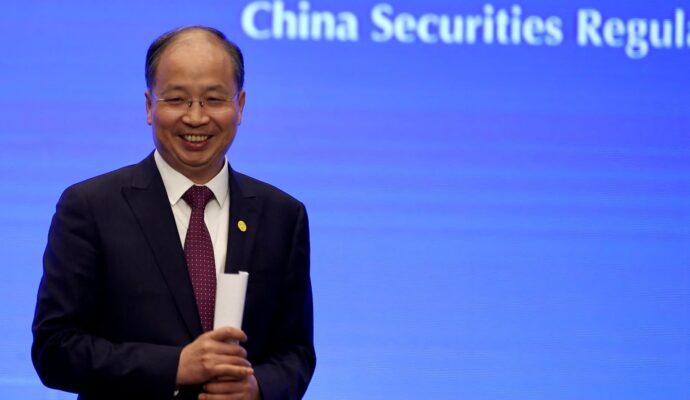Stay informed with free updates
Simply sign up to the Sovereign bonds myFT Digest — delivered directly to your inbox.
A global bond sell-off deepened on Wednesday, driving the yield on the 30-year US Treasury to 5 per cent for the first time since July, as investors’ fears over rising debt piles and stubbornly high inflation dominated trading.
Longer-dated bonds bore the brunt of the selling, with the yield on the 30-year Treasury up 0.03 percentage points at 5 per cent and Japan’s 30-year bond yield hitting a record high of 3.29 per cent.
In the UK, long-term borrowing costs climbed further after reaching their highest level since 1998 on Tuesday. The 30-year gilt yield rose as high as 5.75 per cent, up 0.06 percentage points on the day, before falling back to 5.72 per cent.
The strains across sovereign bond markets come as many major economies face the twin challenge of managing large debts and trying to boost growth without sparking inflation.
“It’s almost a perfect storm of concerns over current fiscal policies becoming inflationary, potentially more global issuance and not enough demand,” said Mitul Kotecha, head of emerging markets macro strategy at Barclays.
Concerns over US deficits were reignited this week after an appeals court ruled late on Friday that most of President Donald Trump’s tariffs were illegal, threatening hundreds of billions of dollars in potential government revenue. Congress’s fiscal watchdog said last month that Trump’s tariffs will cut US deficits by $4tn over the coming decade.
“Sovereign assets are becoming more risky because there are fewer guardrails for politicians, they need to increase budget deficits and have lower rates,” said Alicia García-Herrero, chief Apac economist at French bank Natixis.
The unease in government bond markets continued to rattle stock markets on Wednesday, with Japan’s Topix down 1.2 per cent and Australia’s S&P/ASX 200 down 1.8 per cent.
On Wall Street, the Nasdaq Composite closed down 0.8 per cent on Tuesday and the S&P 500 finished 0.7 per cent lower. Futures tracking the S&P 500 were up 0.4 per cent on Wednesday, with those for the Nasdaq rising 0.3 per cent.
In Japan, investors fear that Prime Minister Shigeru Ishiba might soon be forced to step down following a review of his ruling Liberal Democratic party’s losses in upper house elections in July.
Traders in Tokyo said the potential ousting of Ishiba raised the possibility that a new prime minister would emerge with a more openly populist agenda, including plans for higher government spending.


